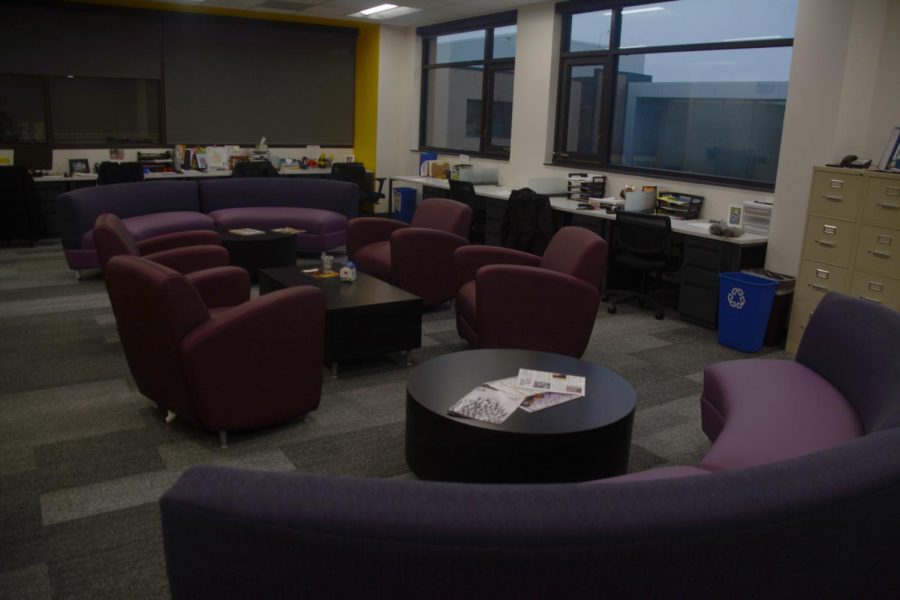Done with DPAs
A DPA full of resources is not utilized by staff or students. DPAs were introduced as a new addition to
April 12, 2018
The Designated Professional Areas (DPAs) have failed to win over the students, and some of the teachers. They were built with the purpose of giving teachers a space where they could collaborate and work together on whatever they needed to, and offer a place for teachers to work with students one on one without interruptions.
Some teachers like to use the DPAs to get away from their students, or to socialize with their colleagues. In a survey sent out to teachers, some said that they believed the DPAs have helped bring the teachers together. While others feel it makes it harder to get work done, “I find it easier to procrastinate, when there’s other people in there, cause I’m like ‘Oh, what are you doing?'” Integrated Language Arts teacher Emma Heitritter said.
Other teachers would rather have larger classrooms than big DPAs, considering that class numbers are larger, and yet the physical classrooms are smaller. A few teachers that participated in the survey said, “Having an actual assigned desk in a DPA means that we have to pack up our things and leave our classrooms”.
Some teachers feel this is a waste of time and would rather have their desks in their classrooms, so that everything is in one place. A survey was also sent out to students and several respondents said, “I would prefer for the teachers to always be in one place”. However, the teachers do appreciate access to multiple copy machines in the new building, compared to the one in the old building.
Many teachers are unhappy with the way the DPAs are organized, yet the teachers were allowed to choose where their DPA was. Several teachers responded to the survey saying, “The DPAs are located far from our classrooms, which result in us rarely using them,”
A possible solution to this is organizing the DPAs by department, which could also make planning easier for the teachers. The Integrated Language Arts teachers are already in the same DPA, which allows them to easily meet during 1st period.
Not every teacher has a DPA, the P.E. teachers have their own offices in the locker rooms. The culinary teachers have chosen to opt out of them entirely and just keep all of their things with them in their classrooms. “They have offered for me to join one, they offer that to all of us,” family consumer science teachers Allison Hoskins said.
Students have a very clear opinion on the DPAs: they do not like them. In the beginning of the school year, the students were told the DPAs were for teachers, and that students were not allowed to enter the DPAs unless they were invited. Students have been operating under the assumption that the DPAs are off limits and because of that, they would rather work with their teacher in classrooms. The DPAs are locked and require a teacher’s key card to get in, which makes them feel secluded and unapproachable to students.
Additionally, students working with their teachers in the DPAs often feel self conscious if there are other teachers in there as well. They feel that the classroom offers a safer environment, and prefer to work there instead. “To me, part of the goal of being a strong teacher is making that personal connection, and we’re a large school,” Hoskins said.”There’s a lot of kids who don’t know who I am. I could see how if a kid doesn’t know who I am, and I was hanging about, might feel uncomfortable.”
Students would also like an easier way to find their teacher’s DPAs. Although it may help teachers by allowing them to collaborate with other teachers of their subject area, it makes it hard for students to always find their teachers for help and remediation. Another participant in the survey felt that the DPAs sounded great in theory, but are actually not very functional. “I think they are more of a hassle than what they are worth”.
Students rarely see their teachers in their DPAs, which makes them question how often they are being used. “The DPAs are like the commons for teachers, except they get to use theirs,” Lexi Cahill ’20 said.





